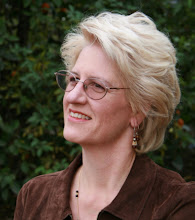James Brady of WashingtonPost.com on convergence
Last night James Brady Executive Editor of Washington Post.com was the key note speaker for the Media Convergence conference at Brigham Young University. He shared his perspective on digital convergence with conference participants and BYU students. (Get his presenteation podcast at http://feeds.feedburner.com/convergence/.)
Brady had some interesting points. I liked his perspective that there are 4 types of digital convergence: technical, audience, competitive and information.
- Technical - Multi-function, converged devices like the new video iPods and smart cell phones.
- Audience - The audience is now part of the news process. Blogs and wikis are recent examples. An interesting quote was that audience convergence is "turn[ing] the media business from lecture into a conversation."
- Competitive - Traditional media using production and delivery methods from other mediums. For example, WashingtonPost.com has videographers who produced video news stories for their Website. This is leading to telling the story in various multimedia ways, whatevere are the best way to tell the story(s).
- Information - Pulling Web-based information from multiple sources to suit the audience members interests. RSS subscription feeds for news headlines, blogs and podcasting are examples. Other creative examples are Web developers who are scraping publically available info such as crime statistics and creating interactive maps that show what crimes are happening where in a community.
Another interesting concept was disaggregation of the Web. The idea here is that people use multiple Web sites for specific tasks. This is enabled by using search engines, blogs, RSS feeds, etc. to find the specific info within a Web site without entering from the site's home page. Basically, users go right to what they're interested in and may never see any other part of a Web site. This means the home page is no longer as important in directing users to information in a site. There's no guarantee that information on the home page will be see. That changes the dynamic within organizations where everyone fights to get their link or blurb on the home page.
In the case of WashingtonPost.com, most people come to their site to read a specific article that they found via a search engine, link in a blog or an RSS feed. For Brady that means that each article page has to do a good job of convincing the user to go deeper into the site to look at related information. His strategies are to get people engaged are:
- Links to blogs about this article
- Adding comments links to all articles (coming shortly)
- Byline linking to the reporter
- Creation of topics pages (I presume with links to related information)
- Multimedia video player
The above are intended to get users deeper in the site. He also talked about the need for strategies to increase the frequency of visits (blogs, message boards), increase time at the site (multimedia content, Web tools), and increase habitual use (opinions area, user-generated content).
I found this an informative and thought-provoking presentation from someone in the trenches. I also think his operation, with 100 employees (wow), is leading the evolution of convergence in the newspaper area. Definitely an operation to one's eye on.

